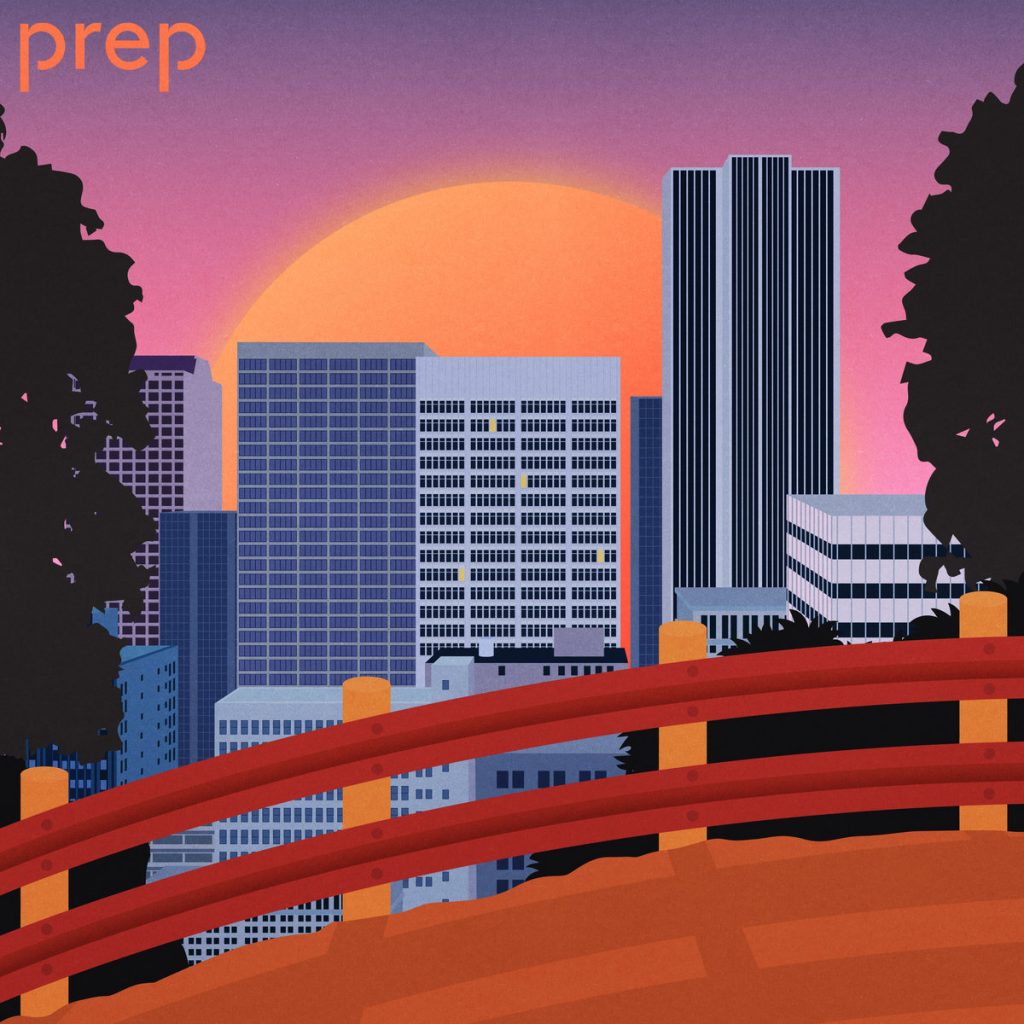Originally founded as a project by four established artists, PREP has developed from EP to EP from an insider tip to a bearer of hope of sophisticated British pop music. The quartet comprises of Grammy nominated producer Dan Radclyffe, French drummer Guillaume Jambel, Welsh keyboardist Llywelyn Ap Myrddin and London-based singer and frontman Tom Havelock. Together, they have created over the past five years an eclectic blend of contemporary indie pop, soul and synths, deeply rooted in the melodic West Coast elegance of the 70s and 80s. In late October, the quartet finally released their highly anticipated self-titled debut album on Bright Antenna Records. WEST COAST SOUL talked with Guillaume Jambel and Tom Havelock about the making of their debut, their musical development, their shared love for Steely Dan, the importance of smoothness and the value of nostalgia.
You four originally come from very different backgrounds: Llywelyn composes classical music, Tom is a singer-songwriter, Guillaume a house DJ, and Dan produces hip-hop tracks. How did you meet?
Guillaume: Llywelyn and I met through a musician friend and bonded over our mutual appreciation of Steely Dan and Michael McDonald records. We decided to form a band and got Dan involved, who we both knew. The three of us started working on demos and once we had one that was pretty solid, Dan sent it to this singer he knew. We hadn’t even met Tom back then, but as soon as we heard his voice on ‘Cheapest Flight’ we knew we had something that sounded quite unique. It was the missing piece of the puzzle.
What inspires you about the music of Steely Dan?
Guillaume: For me it’s an ensemble of things: their slick sonic sophistication of course but also their killer grooves. I have obsessed over 70s and 80s session musicians for most of my life and Steely Dan always featured the greatest rhythm sections. Llywelyn however, was fascinated by their complicated, yet accessible chord progressions. And I know Tom, you love some of their lyrics… Steely Dan is quite simply the only band we all like.
Tom: There’s no band like them for giving you this surface sheen of hi fi perfection, and then you look deeper and everything starts to get a little murky. We could talk for ages about Steely Dan, but I think a lot of it comes down to them living and working in LA, making that kind of ultra-smooth music but with the outside perspective of New Yorkers. They’re also funny, which I don’t think you get that often in good music.
When you started working together five years ago, to record an album was the place you wanted to reach, but first you needed to find your path. How would you describe your musical development since 2015? And why was now the right moment to release an album?
Tom: I think we’ve developed a much broader sense of what PREP is. A lot of that comes down to what we’ve learned from touring. We actually thought when we started that we’d just be a studio project. I remember Guillaume showing me Chaka Khan ‘Live at the Roxy’ and saying “if we ever do PREP live, it needs to be like this”, which felt like another way of saying “we will never be able to play live”. But then we got asked to perform in a few places, and it pretty quickly started feeling like a really crucial part of what we do, and developed a whole energy of its own which I think you can hear in songs on the album like ‘Years Don’t Lie’ – something we’d never have made at the start of PREP. And why now for the album? I think we all felt the time was right for putting together a record, a bigger piece of work with a bit more scope. And frankly, 5 years before a debut album already feels ridiculous, so we couldn’t really wait any longer.
Tell us a little bit about the creation process of the album. How long did you work on it and was there a basic idea or mood you wanted to capture with the album?
Guillaume: We always wanted the album to be something our fans would like but also experiment a bit, maybe show a different side of the band, as long as the whole thing would remain in familiar territories. The four of us went to the studio daily between October and December 2019 and wrote plenty of demos. The idea was to let these breathe over the New Year and regroup in February to actually start recording. But then, you know what happened: with lockdown in place, our plans got cut short. Even though we ended up having less time than we would have liked, we decided to keep our deadline, which was actually very good for us. We naturally have a tendency to work very slowly and would probably still be tweaking the mix now…
You have worked with an excellent cast of musicians on your debut.
Tom: Collaboration has always been really important to us (not least because none of us can play the saxophone) and we’re lucky to know and work with a lot of excellent musicians here in London, and also people we’ve hooked up with in other places. It’s one of the biggest pleasures in making a record, handing it over to someone else for them to do their thing and then hearing what you get back. Miso, who sings on The Stream, we met through Dean. She’s a brilliant singer from Seoul, who made some of the coolest lockdown videos I’ve seen (Miso’s Home Alone). And Rai Thistlethwayte is someone whose playing we’ve been big fans of for a while, so we just hit him up, he said yes, and we got a beautiful Rhodes solo on ‘Danny Came Up’.
A connecting element of your music is a certain smoothness. How would you define ‘smoothness’ in relation to your music?
Guillaume: Smooth is and remains the key word. The grooves, chord progressions, the lyrics… No matter how complicated we go at the writing stage, eventually all this stuff need to sound effortless, have a good flow. It takes work to find the right balance.
Tom: Yes, absolutely. It brings me back to Steely Dan and how amazing I think they are at this. There’s all sorts of weird, dark stuff going on in what they’re writing about, but it all gets arranged into this flow of energy which has a kind of optimistic glide to it. I guess it’s close to that thing with soul music – you can be dealing with some real pain, but there’s always a groove.
There is always a certain nostalgic component under the modern surface of your songs. How big would you estimate the influence of West Coast music, blue eyed soul and soft rock on your music?
Guillaume: There’s no denying the entire PREP world lives in AOR roots. However, as soon as a demo starts sounding retro, or too “correct”, it’s time to leave the vintage vibes behind and head in a different direction. We are big fans of the classic bands – we collect the records, study the tunes, watch the documentaries… But we are not trying to make music that sounds like it could have been released 30 years ago, recorded with the right gear, the right microphones: in fact this is the exact opposite of what we do.
In a certain sense, nostalgia is in vogue in contemporary music. It is often less about the artists’ and listeners’ self-experienced past in the 90s or 2000s, but rather the recourse to elements of the pop culture of the 70s and 80s. To what do you attribute this general enthusiasm for the past?
Tom: I think going back to records from the past can be very reassuring if you’re feeling anxious and uncertain about the future – especially if it’s a past you don’t remember yourself, so you can turn it into whatever you need it to be. You can put on some Lionel Richie and think “man, the 80s must have been amazing”, and maybe not think about all the political anger, the fear about nuclear war etc etc. And there’s a lot of nostalgia in records and films from that period to begin with – loads of stuff looking back to 1950s American teen culture, for example. Complicated, difficult feelings can look simpler and easier to manage when you put them through that nostalgic filter.
PREP stands for preparation, the preparation for a club evening or a show. Your music has a lot to do with club life and performing in front of an audience. The Corona pandemic has just hit artists hard. How do you deal with the crisis? Are you currently planning concerts or special online offers, e.g. online shows to support the album?
Tom: It’s been… strange. And pretty hard. Not just having to cancel a lot of shows we were really excited about, but missing going out, hearing bands playing – and getting just to play and sing together ourselves. One good thing was that we were supposed to be touring in spring, but when that all got cancelled we had a few months clear to finish making the record – I honestly don’t know when we’d have found time to finish it otherwise. We’ve done the odd little lockdown video, and we’ve talked about the possibility of a streamed show, which might happen. But really we’re just waiting to get back in rooms where we can play to people. I don’t think anything’s going to substitute for that.
One last question: In a perfect world, where should one listen to your new album?
Guillaume: It would have to be on vinyl, with a glass of Negroni in hand.
Tom: Rent a car in Palm Springs, start driving west towards LA, and press play on the opening track 40 minutes before sunset.
Thank you very much for the interview!
Thanks for having us!


